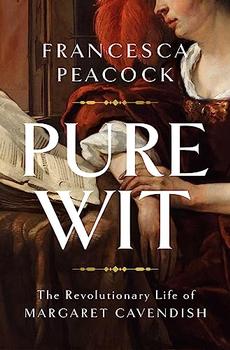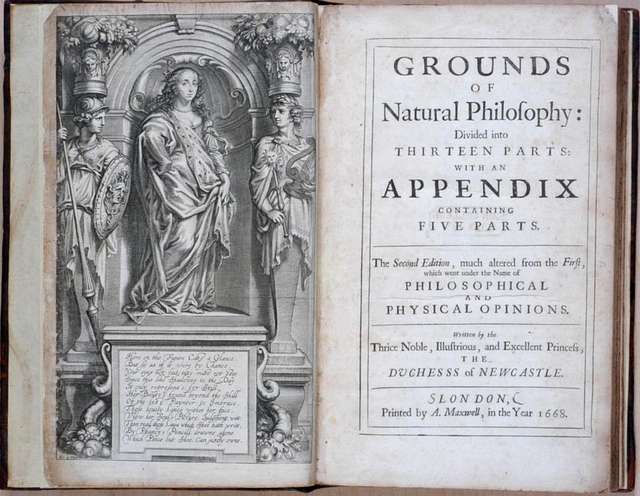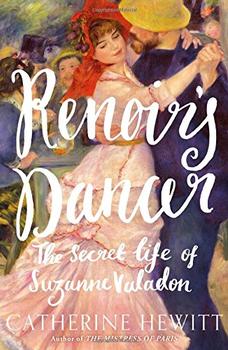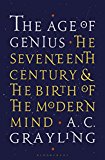Summary | Excerpt | Reviews | Beyond the book | Read-Alikes | Genres & Themes | Author Bio

The Revolutionary Life of Margaret Cavendish
by Francesca PeacockA biography of the remarkable - and in her time scandalous - seventeenth-century writer Margaret Cavendish, who pioneered the science fiction novel.
"My ambition is not only to be Empress, but Authoress of a whole world." —Margaret Cavendish
Margaret Cavendish, then Lucas, was born in 1623 to an aristocratic family. In 1644, as England descended into civil war, she joined the court of the formidable Queen Henrietta Maria at Oxford. With the rest of the court she went into self-imposed exile in France. Her family's wealth and lands were forfeited by Parliament. It was in France that she met her partner, William Cavendish, Marquess of Newcastle-upon-Tyne, a marriage that made her the Duchess of Newcastle and would remain at the heart of both her life and career.
Margaret was a passionate writer. She wrote extensively on gender, science, philosophy, and published under her own name at a time when women simply did not do so. Her greatest work was The Blazing World, published in 1666, a utopian proto-novel that is thought to be one of the earliest works of science fiction that brought together Margaret's talents in poetry, philosophy, and science.
Yet hers is a legacy that has long divided opinion, and history has largely forgotten her, an undeserved fate for a brilliant, courageous proto-feminist. In Pure Wit, Francesca Peacock remedies this omission and shines a spotlight on the fascinating, pioneering, yet often complex and controversial life, of the multi-faceted Margaret Cavendish.
The book delves into Cavendish's philosophical writing, tracking the development of her thinking and apparent confidence in her own theories, and putting them in context for modern readers. Cavendish developed a theory of vitalist materialism, and strongly opposed the theory of mind-body dualism and the existence of a separate spirit world, though she did later clarify that she believed in God. Peacock connects that philosophy, and Cavendish's difficult relationship with the male-dominated intellectual circles that responded to it, with her story The Blazing World, one of the earliest existing works of science fiction. Peacock doesn't defend Cavendish's authoritarian ideas and failure to understand her opponents'—particularly Parliamentarian opponents'—viewpoints. Instead, she calls for Cavendish to receive the same scholarly attention that other writers of her time have, rather than the dismissal as "eccentric" or "mad" that she has historically been subject to...continued
Full Review
 (719 words)
(719 words)
(Reviewed by Katharine Blatchford).
 In her biography of 17th-century author Margaret Cavendish, Pure Wit, Francesca Peacock shines light on often-overlooked aspects of Cavendish's life and work, including her contributions to Western philosophy. From the beginning of her philosophical career, she believed in materialism. Simply put, this is the theory that everything that exists is material and that the events we observe in the world are the result of interactions between matter.
In her biography of 17th-century author Margaret Cavendish, Pure Wit, Francesca Peacock shines light on often-overlooked aspects of Cavendish's life and work, including her contributions to Western philosophy. From the beginning of her philosophical career, she believed in materialism. Simply put, this is the theory that everything that exists is material and that the events we observe in the world are the result of interactions between matter.
This theory rejects the idea of an incorporeal spiritual world—in a materialist view, the soul is either made up of matter like the physical world, or does not exist. In her early writings, Cavendish was a proponent of atomism, a branch of materialism that suggests that the universe is ...

If you liked Pure Wit, try these:

by Catherine Hewitt
Published 2018
Catherine Hewitt's richly told biography of Suzanne Valadon, the illegitimate daughter of a provincial linen maid who became famous as a model for the Impressionists and later as a painter in her own right.

by A.C. Grayling
Published 2017
Out of a 'fractured and fractious time,' the author asserts persuasively, the medieval mind evolved into the modern. Another thought-provoking winner from Grayling." - Kirkus